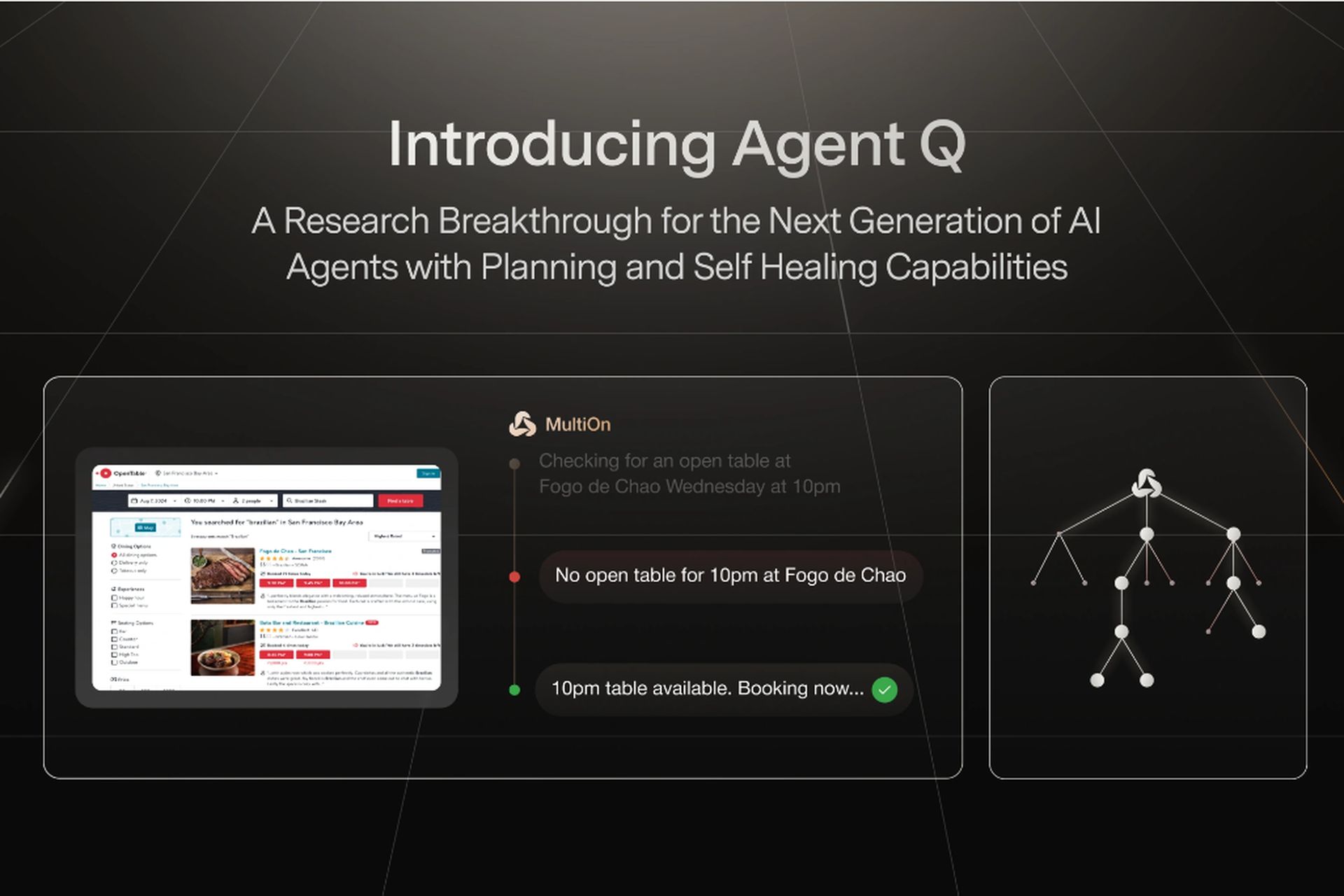MultiON AI Agent Q is another important development in AI. Almost all developments in the domain of AI are major, so it’s almost as if this is the norm anymore. The technology underpinning MultiON AI Agent Q, which was created for autonomous online agents, is intended to address one of the most difficult elements of AI development: allowing large language models (LLMs) to navigate complicated, dynamic settings.
AI will understand the language of AI thanks to MultiON AI Agent Q
Despite the progress in natural language processing, current AI models often fall short in interactive settings, particularly in tasks that require multi-step reasoning. The issue lies in the traditional training methods, which rely heavily on static datasets. These methods do not adequately prepare AI agents for the unpredictable nature of real-world interactions, where decisions must be made on the fly, and errors can easily compound.
This is where MultiON AI Agent Q comes into play. The key innovation with MultiON AI Agent Q lies in its ability to plan and self-heal—features that are crucial for autonomous web agents. By incorporating advanced techniques such as guided Monte Carlo Tree Search (MCTS) and AI self-critique, Agent Q offers a more robust and adaptive approach to AI training. This ensures that the agents are not just passively learning from predefined data but are actively improving through interaction with their environment.
Breaking down the MultiON AI Agent Q technology
At the core of MultiON AI Agent Q is a combination of several advanced techniques that work together to overcome the limitations of existing AI agents:
- One of the most important components is guided MCTS, which enables the AI to autonomously explore different actions and web pages. This technique balances the need for exploration and exploitation, allowing the AI to learn from a wide range of possible scenarios. By generating different and optimal trajectories, the agent is better equipped to perform complex decision-making tasks.
- Another critical aspect of MultiON AI Agent Q is the AI self-criticism mechanism. This feature helps the agent to improve its decision-making by providing step-by-step feedback. This is especially important for long-horizon tasks where the absence of immediate feedback can hinder learning. AI self-criticism allows the agent to continuously improve, even in situations where feedback is infrequent.
- Finally, the Direct Preference Optimization (DPO) algorithm plays an important role in fine-tuning the model. The DPO algorithm generates preference pairs from the data generated through MCTS, allowing the agent to learn from both successful and unsuccessful paths. This non-policy training method is particularly effective in dynamic environments where the ability to learn from past mistakes is crucial.

Real-world impact: Validation of MultiON AI Agent Q
The capabilities of MultiON AI Agent Q are not just theoretical; they have been validated in real-world environments. In an experiment with Open Table, MultiON’s agents improved the performance of the LLaMa-3 model considerably. After just one day of autonomous data collection, the success rate increased from 18.6% to 81.7%, and further refinement increased the success rate to 95.4%. These results highlight the effectiveness of the techniques used in MultiON AI Agent Q and demonstrate its potential to revolutionize autonomous web navigation.
Announcing our latest research breakthrough:
Agent Q – bringing next-generation AI agents with planning and AI self-healing capabilities, with a 340% improvement over LLama 3's baseline zero-shot performance! pic.twitter.com/EdypdDn26M
— MultiOn (@MultiOn_AI) August 13, 2024
MultiON AI Agent Q is more than just a technological innovation because while AI is still in its infancy, building an AI that understands AI is something very different. By combining advanced search techniques, AI self-criticism, and reinforcement learning, MultiON AI Agent Q addresses challenges that have long plagued AI agents in dynamic environments. As MultiON continues to refine and develop these technologies, the potential applications are vast. The future of intelligent autonomous web agents looks brighter than ever under the leadership of MultiON AI Agent Q.
To stay ahead of the curve, developers and users alike can look forward to the release of MultiON AI Agent Q later this year. For those eager to be among the first to experience this breakthrough technology, joining the waitlist is the next step.
Featured image credit: MultiON





